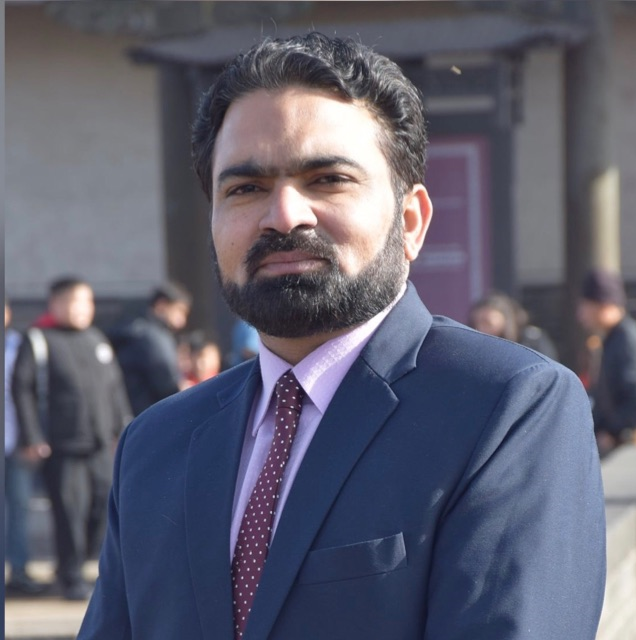BY Abdul Rashid Shakir
‘Ease, Efficiency & Effectiveness (3Es)’ along with ‘Better, Faster & Cheaper (BFC)’ are cornerstones of a responsive governance in modern tech-savvy society, where netizens expect their government to deliver key amenities at their doorsteps. For this, welfare governments adopt lean structures and streamline systems by cutting out ‘waste’ and ‘inefficiency’ in delivery processes. Cumbersome and manual procedures marred with inordinate delays are replaced with IT-based automated and more responsive initiatives for better service delivery. These tech-driven systems not only eliminate a culture of ‘Speed Money’ and ‘Palm Greasing’ but evoke public confidence in getting best value for the money paid.
Punjab Government’s recent drive to restructure its departments by abolishing the duplicate organizations is a step in the right direction to make the system more efficient and responsive. Moreover, the welfare-focused Chief Minister Punjab Maryam Nawaz Sharif has developed Key Performance Indicators (KPIs)-based Scorecard to objectively evaluate quality of service delivery of administration, police and revenue authorities.
‘Maryam ki Dastak’ is a remarkable initiative of the Punjab Government to ensure better and quick service delivery to people at their doorsteps. Initially 10 services are included in the Program for Lahore region, but their number is expected to reach 65 by year-end, besides expanding the program to the entire province. The services like domicile, e-stamping, birth, death and marriage certificates, property tax, token tax, motor, and vehicle transfer and registration of new vehicles can be availed through ‘Dastak App’ in Phase-I, whereas services of police, revenue, municipalities, excise, TMA, development authorities and other departments will also be made available in Phase-II. The Government has launched a programme to register ‘Dastak’ representatives across Punjab. Which would generate decent employment opportunities for around 100,000 youth.
Earlier, under a Rs 30 billion ‘Ramazan Nigahban Relief Package 2024’, around 6.5 million free relief hampers containing 10 kg flour, 2 kg rice, 2 kg sugar, 2 kg ghee and 2 kg ‘besan’ were delivered at the doorsteps of deserving families across Punjab. The Government has also launched, initially for Lahore Region, an online service for the citizens to get their residential maps approved hassle-free.
The provision of free medicines in government health centers and hospitals across the province, and the free home delivery of medicines for patients suffering from cancer, heart diseases, TB and hepatitis are valuable public welfare initiatives of the Punjab Government. Moreover, the Chief Minister Punjab Maryam Nawaz Sharif has directed the authorities concerned to establish a Model Bazaar in every big city within a year, besides starting free home delivery of best quality goods including vegetables and fruits at rates lower than those fixed by the Government.
“Meri Awaz, Maryam Nawaz,” is Pakistan’s first virtual women police station dedicated to addressing problems faced by women, including harassment, where women can share their problems with a female police officer with complete confidentiality and trust through ‘15’ call, the women safety app’s live chat and video call features, Punjab Police App and the Punjab Safe Cities Authority web portal.
The installation of 100 modern emergency panic 15 buttons in universities, colleges, markets, intersections and bazaars across Lahore is another remarkable initiative of the Punjab Government to ensure security of its female folk. These panic buttons can be connected to the Punjab Safe Cities Authority (PSCA) immediately by pressing them in case of any untoward situation.
Moreover, projects like ‘Field Hospitals’ and ‘Clinics on Wheels’; renovation and upgradation of 2500 Basic Health Units (BHUs), 300 Rural Health Centres (RHCs) and major hospitals across Punjab; establishment of trauma centers and ambulance service on Motorways; Pakistan’s first air ambulance service for the distressed across the province; the country’s first public sector cancer hospital, Nawaz Sharif Cancer Care Hospital Lahore; Nawaz Sharif Institute of Cardiology Sargodha; rehabilitation and construction of 600 arterial and connecting roads, 05 Highways and Motorways in the province; besides a Rs 25 billion Undergrad Scholarship Program for the outstanding but deserving students; a Rs 10 billion Laptop Scheme for the talented students of the province; skills training in high-end technologies like cloud computing, cyber security, data analytics, graphic designing, artificial intelligence, machine learning, e-merchandising and game development; construction of Nawaz Sharif IT City Lahore; “CM Maryam Nawaz Free Wi-Fi” service across Punjab, and the use of drone technology for the success of “Zero Waste Mission” on Eid-ul-Adha, effective monitoring of Muharram processions on ‘Ashura’, and timely drainage of water from low-lying areas across Punjab during Monsoon are no doubt impactful interventions of the visionary Chief Minister Maryam Nawaz Sharif-led Punjab Government for the welfare of its people.
Inflation has, no doubt, become the most pressing problem of the common man recently because of multiple reasons both local and international, but the Government is fully mindful of the sufferings of people. It has taken many crucial steps to minimize shocks of the raging price hike. A crackdown against hoarding, smuggling and artificial shortage of goods in the market has significantly reduced prices of essential commodities including flour and its products. The price of bread has decreased from Rs 25 to Rs 13. A 10 kg flour bag, whose price was Rs 1380 in March, is now available for Rs 800. Establishment of a dedicated authority, Punjab Enforcemnet Regulatory Authority (PERA) for the purpose is also on the offing.
The cost of electricity has skyrocketed as a result of meeting unavoidable IMF terms, but the Government of Punjab is determined to minimize its impact on the power consumers. It is bringing Pakistan’s largest-ever solar project in Punjab, “Chief Minister Solar Panel Financing Scheme,” under which free solar plates will be provided to consumers using up to 200 units per month, whereas those consuming 200 to 500 units per month will get solar systems on easy monthly installments. It will reduce their electricity bills by up to 50%.
All above-mentioned initiatives speak volumes of the commitment of Punjab Government’to mobilize its resources for the welfare of people by streamlining complicated approval procedures and plugging the pilfridge.
Abdul Rashid Shakir

















